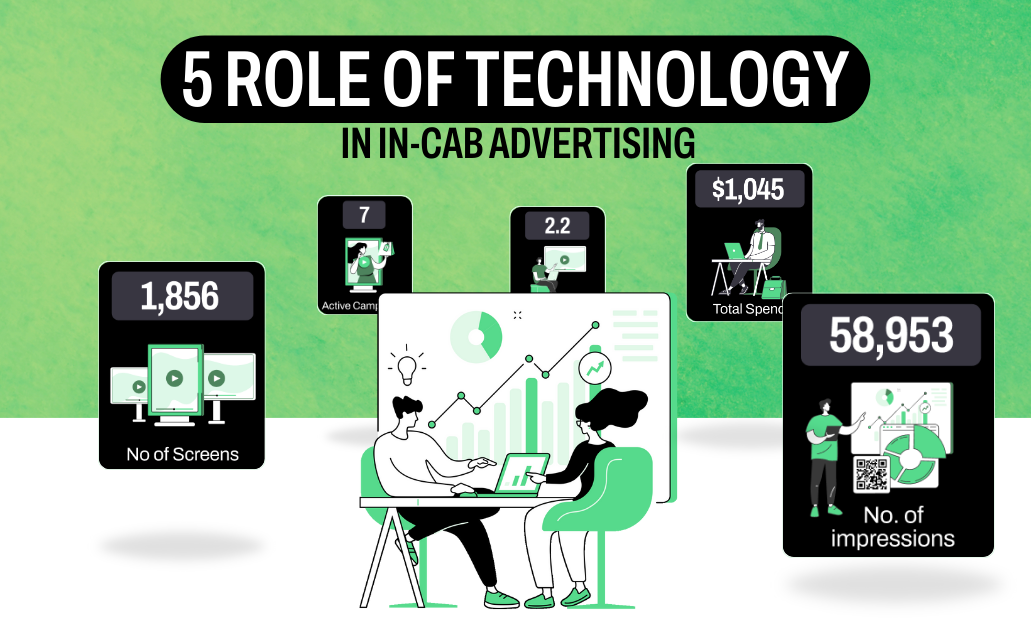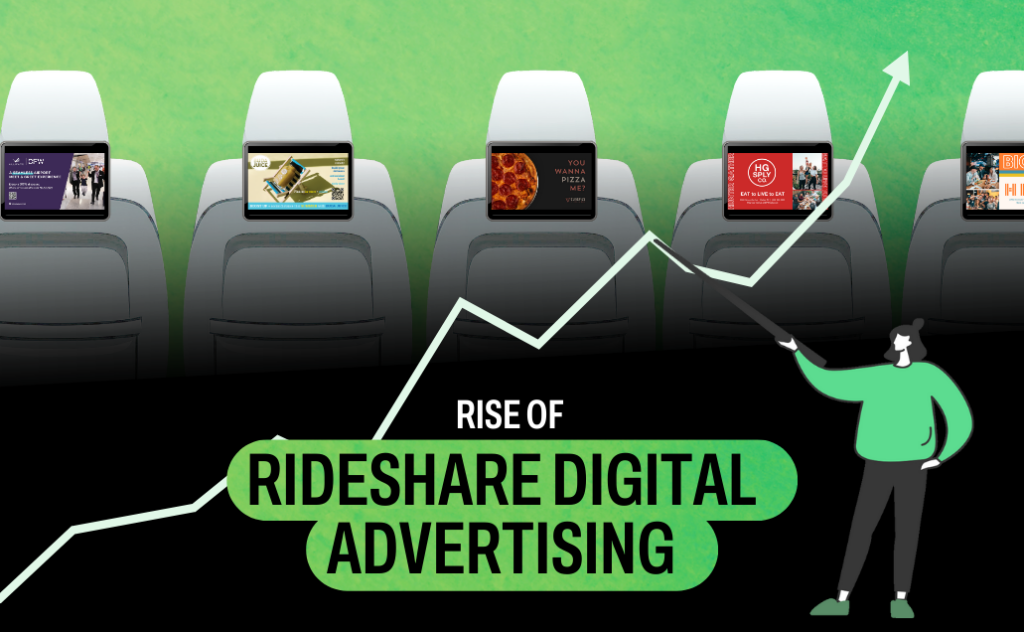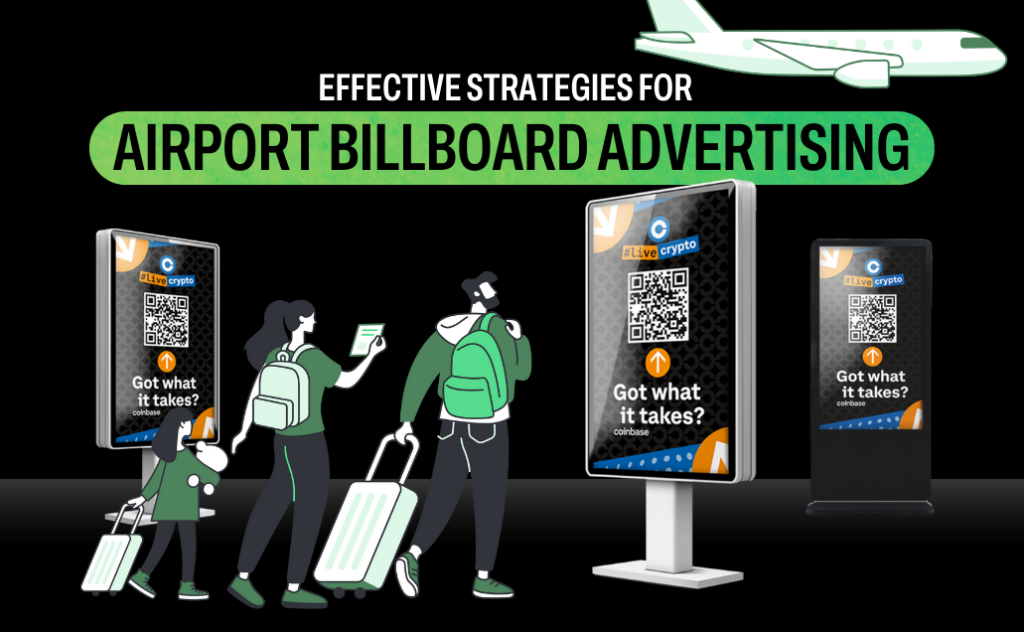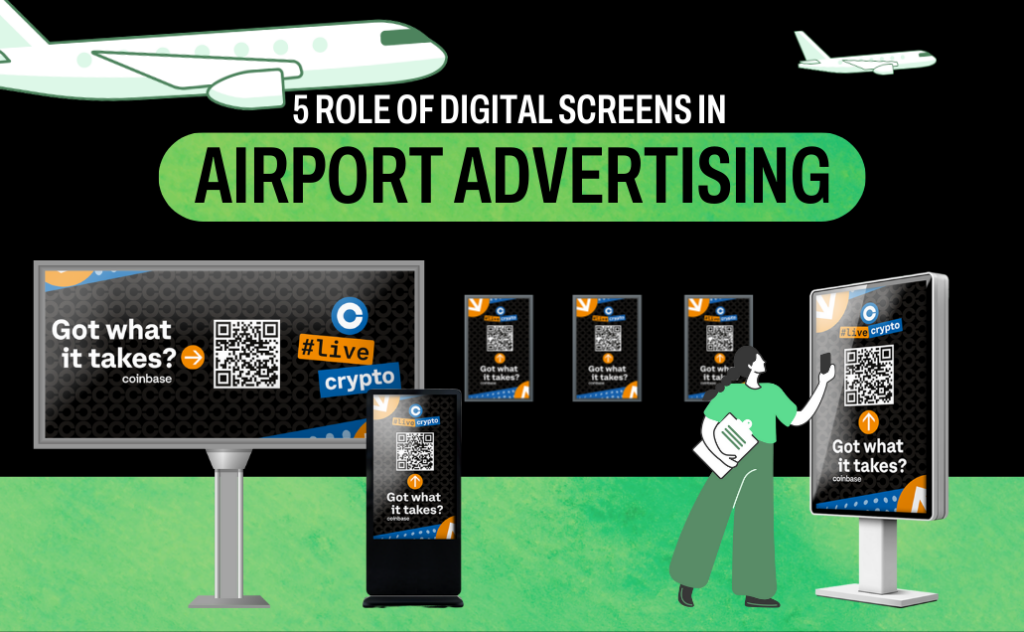1. Interactive Digital Screens
One of the most significant technological advancements in in-cab advertising is the introduction of interactive digital screens. These screens, often mounted on the back of the front seats or on tablet devices, allow passengers to interact with advertisements in real time. For example, passengers can engage with promotional content, participate in surveys or quizzes, and even make purchases directly through the screen.
2. Real-Time Data Integration
Advancements in data integration technology enable in-cab digital advertising to deliver highly targeted and personalized content. By leveraging real-time data such as location, weather conditions, and even traffic updates, advertisers can tailor their messages to the specific context of each trip. For instance, an ad for a nearby restaurant can be displayed to passengers as they approach that area, enhancing relevance and driving immediate action.
3. Geofencing and Location-Based Advertising
Geofencing technology allows advertisers to create virtual boundaries around specific locations, triggering targeted ads when passengers enter or exit these zones. For example, as a taxi approaches a major shopping district, geofencing can activate ads promoting nearby stores or special offers. This location-based advertising helps increase the relevance of the ads and can drive foot traffic to local businesses.
4. Dynamic Content and Programmatic Advertising
Programmatic advertising is revolutionizing in-cab digital advertising by automating the buying and selling of ad space based on real-time data. Dynamic content, which changes based on various factors such as time of day, location, or audience demographics, allows for more flexible and responsive advertising strategies. Advertisers can optimize their campaigns on the fly, ensuring that their messages are always relevant to the current context.
5. Integration with Mobile Apps
The integration of in-cab digital advertising with mobile apps is another major advancement. Rideshare apps and other mobile platforms can display ads directly to users before, during, and after their ride. This seamless integration allows for a consistent advertising experience, with options for personalized offers and promotions based on user preferences and behavior.
6. Voice and Gesture Control
Voice and gesture control technologies are enhancing the interactive capabilities of in-cab digital screens. Passengers can use voice commands or simple gestures to interact with ads, making the experience more intuitive and user-friendly. For example, a voice command might allow passengers to request more information about a promotion or access exclusive discounts.
7. Enhanced Targeting Through AI and Machine Learning
Artificial Intelligence (AI) and machine learning are playing a crucial role in refining targeting and personalization in in-cab advertising. AI algorithms analyze data such as passenger demographics, travel patterns, and engagement metrics to deliver more precise and effective ads. Machine learning models continuously improve ad targeting by learning from user interactions and feedback.
8. Augmented Reality (AR) Experiences
Augmented Reality (AR) is emerging as a cutting-edge technology in in-cab advertising. AR can transform the passenger’s view through digital overlays that enhance the advertising experience. For instance, an AR ad might overlay additional information or interactive elements onto a physical location or product, providing a richer and more engaging experience.
9. Privacy and Data Security
As technology advances, ensuring privacy and data security in in-cab advertising becomes increasingly important. Modern systems employ encryption and secure data protocols to protect passenger information. Additionally, transparency regarding data collection and usage helps build trust with passengers and ensures compliance with data protection regulations.
10. Enhanced Measurement and Analytics
Technology is also improving how the effectiveness of in-cab digital advertising is measured. Advanced analytics tools provide detailed insights into ad performance, including metrics such as viewership duration, interaction rates, and conversion tracking. These insights enable advertisers to assess the impact of their campaigns and make data-driven decisions to optimize future advertising strategies.
Conclusion
Advancements in technology are transforming in-cab digital advertising, making it more interactive, personalized, and data-driven. From interactive digital screens and real-time data integration to AI-driven targeting and augmented reality experiences, technology is reshaping how brands connect with consumers in the confined space of a taxi or rideshare vehicle. These innovations not only enhance the effectiveness of in-cab advertising but also offer new opportunities for engagement and personalization.
As technology continues to evolve, the potential for in-cab digital advertising will expand, offering even more sophisticated and engaging ways for brands to reach their audience. Embracing these technological advancements will be key for advertisers looking to stay ahead in the competitive world of mobile advertising.




